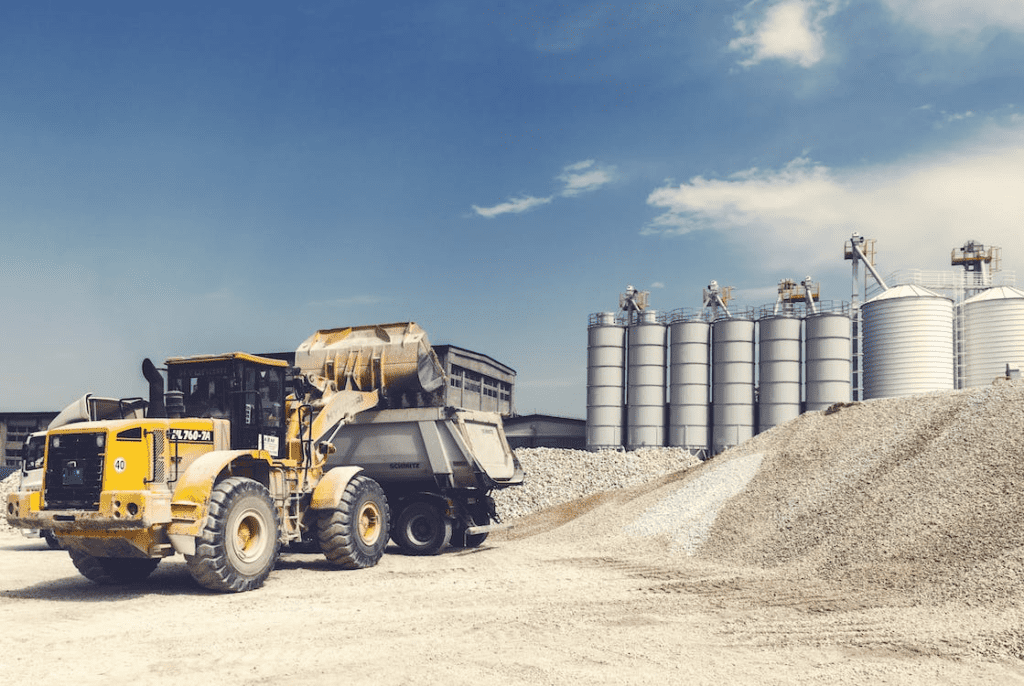Are you in the market for a concrete crusher? If so, you probably have some questions about them. This article will answer all of your questions and more. So, keep reading to learn everything you need to know about concrete crushers!
What Is A Concrete Crusher And What Are Its Uses?

A concrete crusher is a machine used to reduce the size of concrete aggregate, making it easier to recycle old concrete.
There are a variety of machines that can be used to crush concrete, and each one has its advantages and disadvantages.
For example, jaw crushers are typically used for smaller projects because they can’t handle the weight of larger chunks of concrete.
On the other hand, impact crushers are better suited for larger projects because they can handle the high-impact forces of large chunks of concrete.
Ultimately, deciding which type of crusher to use depends on the project.
In addition to reducing the size of concrete aggregate, crushers can also be used to change the shape of the aggregate. This is beneficial if you want to produce a particular shape or size of the product.
For example, you might want to use a crusher to create angular aggregate for use in construction projects. Crushers can also create a more uniform product by breaking large chunks of concrete into smaller pieces.
This is helpful if you want to produce a product with sure consistency. Overall, crushers offer a versatile tool for those working with concrete.
To learn about the Concrete Crusher for Sale, Click here!
How Do Concrete Crushers Work?
Concrete crushers are powerful equipment to reduce concrete into smaller, more manageable pieces. Crusher buckets, for example, attachments to excavators and loaders, are used for crushing concrete on site.
These units work by applying a force to the material more significant than its compressive strength, breaking it into smaller pieces. Hydraulic breakers are also sometimes used for this purpose.
Crushers typically compress the concrete between two vertical plates, called jaws, that get progressively closer together as the material is reduced into smaller and smaller pieces. The crushed concrete can then be recycled as aggregate for new projects.
Concrete crushers make it possible to reuse old concrete instead of sending it to landfills, where it can take up valuable space. Not only does this save on disposal costs, but it also reduces the environmental impact of creating new concrete from scratch.
To learn about the Small Portable Rock Crusher Machine For Sale, Click here!
What Are The Different Types Of Concrete Crushers?
There are many types of concrete crushers available on the market. Here are the 3 major ones;
- Jaw Crushers – Jaw crushers use two elongated jaws that rotate back and forth to crush heavy-duty concrete particles between an anvil or fixed plate at the bottom of the feed hopper.
- Impact Crushers – Impacts use high-speed collisions with breaker bars or metal surfaces to break apart concrete debris into manageable pieces for recycling or disposal.
- Gyratory Crushers – A gyratory crusher uses a large cone-shaped crushing surface on a rotating frame powered by an electric motor. They work mainly with secondary applications as they can handle more extensive materials than jaw and impact crushers.
- Cone Crushers – Cone crushers are similar in how they operate to gyratory crushers but have a shorter spindle with a larger diameter crushing surface relative to their height. Both cone and gyratory-type crushers have an opening at the bottom of their shells where crushed material discharges until it’s small enough to fall through a narrow opening at the bottom of the chamber.
To learn about What is a Concrete Crusher? Click here!
What Factors To Consider When Purchasing A Concrete Crusher?
When choosing a suitable concrete crusher for your business, there are a few factors you will need to consider. Here are 5 of the most important:
Factor #1: Size
The size of the crusher. You will need to choose a big crusher to handle the concrete you need to crush. If you try to use a too-small crusher, you will find that it struggles to cope with the volume and takes much longer than necessary.
Factor #2: Power
The power of the crusher. Another critical factor to consider is how much power the crusher has. This is measured in tons per hour (TPH). The higher the TPH, the faster the crusher can process materials. However, you will need to ensure that the engine has enough power to sustain operation at maximum capacity. Otherwise, it will overheat and break down.
Factor #3: Weight
The weight of the crusher. Another thing you need to take into consideration is how heavy the crusher is. This is important because it will affect how easy it is to move around and how stable it is when in use. If you plan on using the crusher in one location, then weight may not be such an issue. However, a lighter model may be more suitable if you move it around frequently.
Factor #4: Portability
The portability of the crusher. When considering portability, you must consider both the machine’s weight and dimensions. Ideally, you want a machine that is easy to move but compact enough not to take up too much space. Some models can be large and bulky, so this may not be ideal for you if space is limited.
Factor #5: Warranty
The warranty on the crusher. Finally, you should always check what kind of warranty is included with the machine before making your purchase. This will protect you if anything goes wrong and ensure you can get a replacement or repair if necessary. Warranties can vary considerably in terms of length and coverage, so make sure to read the fine print before making your decision.
How To Use A Concrete Crusher?
A concrete crusher is a great way to recycle concrete blocks, pavers, and even roads. It allows for the on-site crushing of concrete materials, reducing the volume of waste material and your company’s disposal costs. Follow these five simple steps to get the most out of your concrete crusher.
Step #1
Select the suitable size crusher. Not all crushers are created equal, so select one that fits the opening you need to crush. Smaller crushers are better suited for smaller projects, while larger crushers can handle larger jobs.
Step #2
Position the crusher correctly. Before starting the crushing process, position the crusher to have a clear path to the job site. Otherwise, you risk damaging both the machine and your product.
Step #3
Start slowly and increase speed as needed. It’s important not to overdo it when using a concrete crusher. Start slowly and gradually increase speed as needed to prevent jamming or breakage.
Step #4
Keep an eye on your product. As you’re crushing concrete, keep an eye on your product so that you can adjust accordingly. You may need to add or remove the material to achieve the desired outcome.
Step #5
Follow up with proper disposal methods. Once you’re finished crushing concrete, dispose of it properly. Local landfills typically accept concrete waste but check with your local regulations first to be safe.
To learn the difference between Concrete Crusher vs Impact Crusher, Click here!
Tips For Maintaining Your Concrete Crusher

As any concrete contractor knows, an adequately maintained concrete crusher is essential for ensuring the quality of your finished product. Here are three tips for maintaining your crusher:
- Keep the jaws lubricated – The jaws of your crusher are what do the actual crushing, so it’s essential to keep them lubricated. This will help extend their life and prevent wear and tear.
- Check for material buildup – Over time, the material can build up on the teeth of the jaws, reducing their effectiveness. Periodically check for buildup and clean it off as needed.
- Inspect the belt – The belt is another crucial component of your crusher. Inspect it regularly for signs of wear and tear, and replace it if necessary.
By following these simple tips, you can keep your concrete crusher in top shape and ensure that it produces quality results.
Head to our website to learn more about our different aggregate processing machines. Have questions? We’re here for you! Call (844) 440-0266 or email [email protected] to reach one of our experts.



